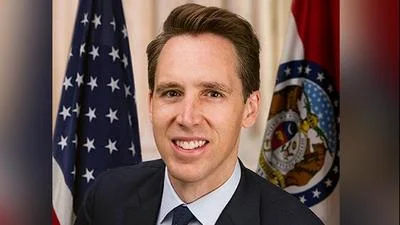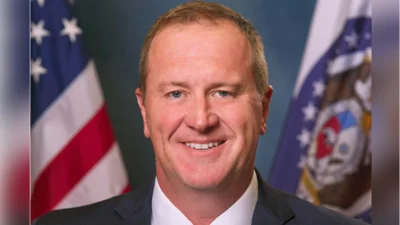Daniel P. Mehan, President and CEO | Missouri Chamber of Commerce and Industry
Daniel P. Mehan, President and CEO | Missouri Chamber of Commerce and Industry
The adoption of artificial intelligence (AI) tools, especially generative AI technologies such as ChatGPT, has accelerated rapidly in Missouri and across the United States. Since late 2022, these technologies have become increasingly prominent in workplaces, leading to both opportunities and challenges for businesses and employees.
According to recent data, the use of generative AI tools is expanding at a rate faster than any previous technology. ChatGPT alone reports 500 million users weekly and processes over 2.5 billion queries daily. In Missouri, AI adoption by companies has more than tripled since the U.S. Census Bureau began tracking this trend in September 2023. By mid-July, 10.5% of Missouri businesses reported using AI—higher than the national average of 9.3%.
While there have not yet been major shifts in hiring or significant industry disruptions in Missouri due to AI, many agree that AI is starting to influence hiring practices and job requirements in certain fields. Experts anticipate that some industries will experience substantial impacts from AI within three to five years.
At the federal level, policymakers are emphasizing support for innovation while discouraging regulations that could slow progress. On July 23, 2025, the White House released “America’s AI Action Plan,” describing it as a “national security imperative” for the country to maintain its leadership position in AI development.
The plan includes several key recommendations:
1. Accelerate AI Innovation: This pillar features suggestions such as discouraging states from enacting “burdensome AI regulations,” preparing American workers for new technologies, and increasing federal government adoption of AI.
2. Build American AI Infrastructure: The plan calls for faster development of data centers, semiconductor manufacturing facilities, and energy projects.
3. Lead in International AI Diplomacy and Security: Recommendations focus on deploying U.S.-developed AI technology among allies and addressing threats from malicious actors.
These recommendations may create new opportunities for Missouri by supporting workforce training initiatives for both current and displaced workers and promoting growth in advanced manufacturing sectors.
States are responding differently to the rise of AI technology. Some are focusing on improving government services with automated tools like chatbots or using predictive analytics to address infrastructure needs such as highway maintenance. Others are prioritizing risk mitigation through regulatory measures designed to protect privacy or clarify content ownership generated by generative AI tools.
Over the past year, state legislatures introduced more than 1,000 bills related to artificial intelligence; however, only a few have become law so far. Comprehensive legislation regulating business use of AI remains rare—Colorado is currently the only state with such a law—while most states opt for targeted measures addressing specific concerns like digital likeness protection or content rights.
Workforce training is another area where states differ widely in their approaches. As certain jobs face greater impact from automation while others change or remain largely unaffected, some states are mapping regional demand for training resources tailored to local industries’ needs. For example, Michigan’s “AI and the Workforce Plan” focuses on upskilling existing employees so they can adapt or transition into new roles as necessary.
Traditional degree programs may not be sufficient to meet emerging skills demands; instead, professional associations are beginning to offer specialized training on topics like AI literacy and ethics as part of ongoing education efforts.
States with established technology sectors have additional opportunities to attract or expand businesses focused on artificial intelligence but require investments in power infrastructure, broadband connectivity, and workforce development programs.
Some states are also helping local companies implement these technologies effectively—West Virginia recently created an AI task force tasked with identifying economic opportunities linked to artificial intelligence deployment.
As these varied strategies develop across state lines without a clear consensus on best practices yet emerging, observers note that “the idea that states are laboratories is proving to be true as the pace of AI deployment continues to accelerate.”
Missouri’s efforts over the last decade aimed at strengthening its tech sector may position it well moving forward. By continuing workforce training programs, pursuing targeted legislative approaches when needed, and investing further in technological infrastructure development, stakeholders believe Missouri industries could benefit significantly from ongoing advances in artificial intelligence over the next decade.






 Alerts Sign-up
Alerts Sign-up